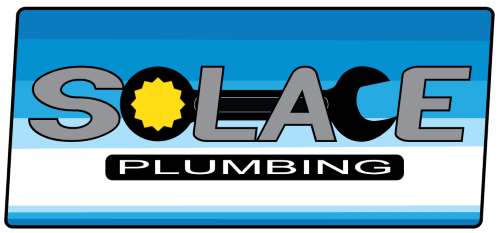Problems Caused By Hard Water
While not typically harmful to health, hard water can cause a wealth of troubles that affect the efficiency of home appliances and the overall plumbing system.
Hard water is a typical problem faced by many households, notably in areas with high mineral content in the water supply. While not typically harmful to health, hard water can cause a wealth of troubles that affect the efficiency of home appliances and the overall plumbing system. Understanding these matters can help homeowners take appropriate measures to mitigate the effects of hard water and maintain their plumbing systems more effectively.
Scale buildup in pipes and appliances
One of the most significant problems caused by hard water is the accumulation of scale inside pipes and appliances. The minerals that can be found in hard water, primarily calcium and magnesium, leave deposits on surfaces they come into contact with. Over time, these deposits can gather, decreasing water flow and efficiency in pipes, faucets, and appliances such as dishwashers and washing machines.
Reduced efficiency of water heaters
Water heaters are notably susceptible to the effects of hard water. As scale builds up inside the tank and on heating elements, it acts as an insulator, reducing the heater's efficiency. The appliance must work harder and use more energy to heat water, leading to increased energy bills.
Soap scum and residue
Hard water interferes with the lathering and rinsing properties of soaps and detergents. The minerals in hard water react with soap, creating a sticky substance known as soap scum. Soap scum can accumulate on fixtures, shower doors, and bathtubs, making cleaning more difficult and time-consuming. Moreover, it can leave a residue on clothes and dishes, making them appear dull or feel stiff.
Stains on fixtures and surfaces
The mineral content in hard water can leave unsightly stains on fixtures, sinks, and other surfaces. These stains, often appearing as white or yellowish spots, can be difficult to remove and may need specialized cleaning products. In bathrooms and kitchens, these stains can detract from the appearance of the space and require frequent cleaning to maintain a tidy appearance.
Dry skin and hair
Hard water can have adverse effects on personal hygiene. When bathing or showering in hard water, the minerals can leave a film on the skin, potentially leading to dryness and irritation. Similarly, hair washed in hard water may become dull, brittle, and more prone to tangling. Some individuals may find they need to use more personal care products to counteract these effects.
Shortened lifespan of clothing
Laundering clothes in hard water can lead to a shorter lifespan for fabrics. The mineral deposits can become trapped in the fibers, making them feel stiff and look dull. Over time, this can cause clothing to wear out more quickly. Additionally, the need for more detergent to achieve effective cleaning can further stress fabric fibers.
Clogged showerheads and faucets
Showerheads and faucets are often the first places where the effects of hard water become visibly apparent. Mineral deposits can clog the small openings in these fixtures, reducing water flow and altering spray patterns. Routine cleaning is needed to keep up optimal performance, and in some cases, replacement may be required.
Increased energy costs
The cumulative effect of hard water on appliances and heating systems can lead to significantly increased energy costs. As appliances work harder to overcome the effects of scale buildup, they consume more energy. Water heaters, in particular, can see a marked decrease in efficiency, resulting in more expensive energy bills.
Plumbing system deterioration
Over the long term, hard water can contribute to the deterioration of a home's plumbing system. As scale gathers inside pipes, it can lead to reduced water pressure and flow. In extreme cases, pipes may need to be replaced entirely, a costly and disruptive process that often requires the expertise of a residential plumber.
Inefficient water softeners
While water softeners are designed to address hard water issues, they can become less effective over time if not properly maintained. The resin beads inside water softeners can become coated with mineral deposits, reducing their ability to remove hardness from water. Regular maintenance and occasional resin replacement are necessary to keep water softeners functioning optimally.
Addressing hard water problems often requires a multi-faceted approach. Installing a water softener is a common solution, but it's important to choose the right system for the specific water hardness level and household needs. Regular maintenance of appliances, including descaling treatments, can help mitigate the effects of hard water. For existing scale buildup or related plumbing issues, consulting with a professional plumbing repair service is advisable.
In some cases, more comprehensive water treatment systems may be necessary, especially in areas with extremely hard water. These systems can include filtration methods beyond simple water softening, addressing other water quality issues simultaneously.
By understanding the problems caused by hard water, homeowners can take strong steps to protect their plumbing systems, appliances, and personal comfort. Regular monitoring of water hardness levels and consultation with plumbing professionals can help in developing an effective strategy to combat hard water issues.
Solace Plumbing is a leading plumber in Gilbert, AZ, offering sewer services, water heater, tankless water heater, electric water heater, gas water heater, water filter, reverse osmosis system installation and repair, water conditioner installation and repair, water treatment system maintenance, and water treatment system installation and repair. Licensed and insured with years of industry experience. Call us for an estimate.

